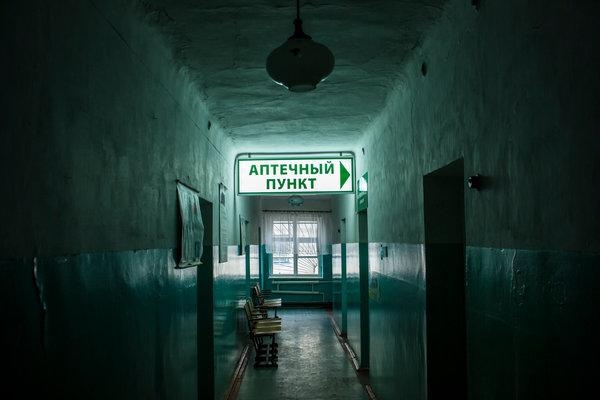Ukraine is fighting corruption one heart stent at a time
The scale of global kleptocracy has become so vast — by some accounts, more than one trillion dollars is stolen annually from developing countries — that it is almost impossible to imagine how the problem could ever be defeated. But a tiny victory in Ukraine shows a way forward.
Ukraine has high rates of smoking and drinking, and the national delicacy — salo, or cured pork fat — is representative of a heart-unhealthy traditional cuisine. Cardiovascular disease is by far the leading cause of death in the country, killing two out of every three Ukrainians.
Despite this alarming statistic, however, surgeons have long struggled to obtain stents, the small tubes of steel mesh used to open up the arteries that supply oxygen to the heart after they have become clogged. For years, tens of millions of dollars were siphoned out of the health care budget by corrupt intermediaries and hidden offshore for the benefit of powerful insiders. Meanwhile, hospitals crumbled. Doctors failed to obtain medicines and spare parts for their equipment, or to even be paid.
Some took bribes to earn a living wage, undermining their patients’ trust. Life expectancy in Ukraine lags behind that in the country’s European neighbors. The precise amount of money stolen overall under Viktor Yanukovych, the egregiously crooked president overthrown in 2014, may never be known, but a former prosecutor general put it at $100 billion.
Neither is it known how many Ukrainians died for want of vaccines, other medicine or treatment, which the country’s Constitution supposedly guarantees them the right to. But last year, for the first time in a decade, mortality dropped for heart-attack patients. Twenty percent fewer people died in 2017 than in 2015 in the regions where new procedures were introduced, and surgeons inserted more than 50 percent more stents.
Some 420 Ukrainians are still alive as a result. These figures may not sound like much, but for a nation accustomed to being robbed of public services — or even robbed by them — they are highly encouraging. The most effective way to tackle transnational graft may be through such small, pragmatic measures rather than in a single, grand sweep.
After the 2014 revolution, Ukraine’s health ministry asked international bodies to procure medicine and medical equipment on its behalf, using its money. It hoped to cut out the crooked insiders who had been inflating prices for their own benefit.
The initiative has been a spectacular success. Taken together, the purchases of medicines and medical devices by two United Nations agencies and the British nonprofit company Crown Agents have cost 40 percent less than those under the previous system. In 2016, Crown Agents bought more than twice as many stents as it had been contracted to buy, at half the price previously paid for half that number.
The procurement program saved the Ukrainian government $3 million on stents alone — and $222 million overall. And the savings, according to Health Minister Ulana Suprun, have gone into buying more drugs and medical devices.
It was the young activists who occupied the center of Kiev throughout a cold winter who toppled Mr. Yanukovich. But it is the bureaucrats, accountants, and experts at the health ministry and international agencies who are now fulfilling the promise of those activists’ ambitions.
The reformers who pushed change through Ukraine’s Legislature had a tough job overcoming delaying tactics from the allies of the previous elites. And it is taking longer than they had hoped to put in place Ukraine’s own competent and honest procurement agency. The international agencies involved in the medical purchasing program were supposed to hand procurement back to the Ukrainian government next March.
But Ms. Suprun told me recently that Ukraine would need them to stay involved for another couple of years before the country can continue alone. Still, the progress so far, in a short period of time, suggests how all of Ukraine’s corruption-plagued institutions could be cleaned up. Honest outsiders need to be brought in to break the pattern of corrupt behavior and give the government the breathing space it needs to create a clean system, free of interference. Of course, it is not enough to fight corruption simply with technocratic improvements.
Ukraine still has to jail its kleptocrats and their cronies, and sack the officials who looted the medical system for so long. Those people’s offshore assets will have to be tracked down, and money stolen from the budget returned and spent on the people it was originally intended for. Similarly, international agreements are needed to end the abuse of corporate structures that allowed people like Mr. Yanukovich to conceal their ownership of so much property via shell companies in multiple jurisdictions.
But as the story of Ukraine’s heart stents shows, the magnitude of the task at hand shouldn’t distract from the importance of incremental gains. Small measures can save lives and money fast — and they show how even the most entrenched corruption can be uprooted, one poisonous weed at a time.
Related Posts

